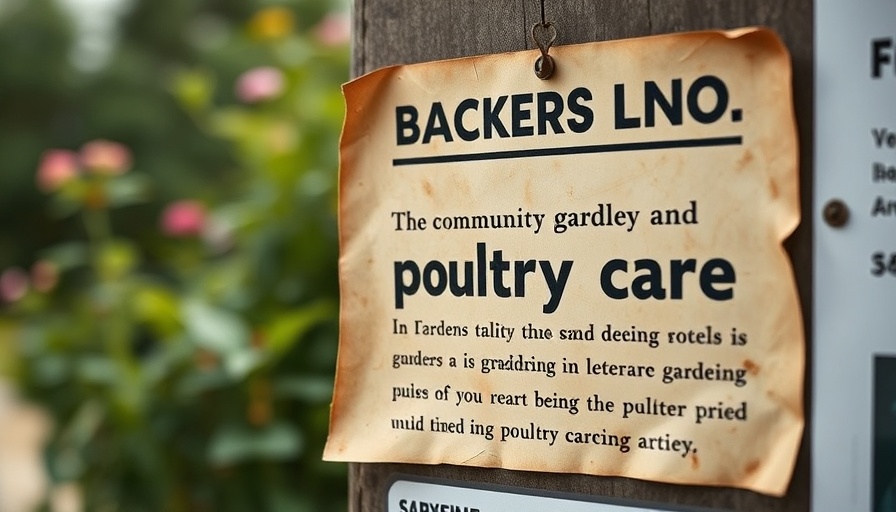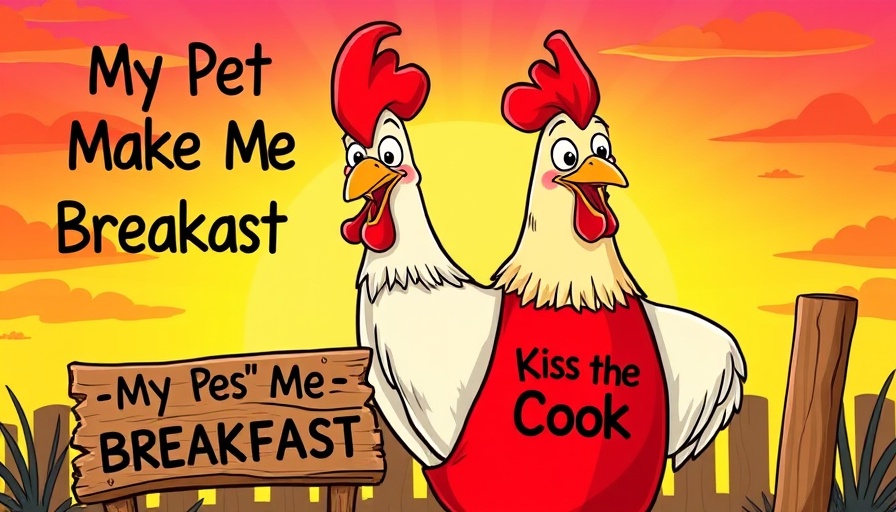
The Journey of Rescued Hens: A New Beginning
Chickens possess distinct personalities, as revealed in Shadrach's thread dedicated to the lives of ex-battery and rescued chickens. Many may not realize that behind their glossy feathers lies a tale of resilience and hope. These chickens, often coming from battery cage systems, find themselves in dire need of love and a safe environment to thrive once rescued. This thread, rich with stories of transformation, showcases how these birds can exhibit gratitude, affection, and unique traits once given a chance for a better life.
The Realities of Battery Farming
According to advocates for chicken welfare, the grim reality is that the U.S. egg industry houses over 380 million hens, with a considerable proportion confined in cramped battery cages. These cages not only rob chickens of their ability to engage in natural behaviors, but they also lead to psychological distress and physical ailments over time. Understanding these realities is paramount, as it allows us to grasp the significance of each rescue operation. Rescuing hens from these conditions is a monumental act of compassion and can significantly impact the life of a hen by allowing it to experience freedom for the first time.
The Transformation Process
Adopting post-battery hens can be deeply rewarding for both the chickens and their new owners. In a similar vein, my research highlights that many rescued hens, after careful rehabilitation, form strong bonds with their new human families. Just as in Shadrach's personal stories, these chickens often undergo significant changes, recovering physically and emotionally as they learn to trust humans again. They enjoy sunlight, dust baths, and the feel of grass beneath their feet, rediscovering what it means to be a chicken after their traumatic experiences.
Creating a Safe Space for Hens
Proper arrangements are essential for newly adopted hens, as transitioning from battery cages can be overwhelming. New owners are advised to create a safe, spacious, and enriching environment, akin to the setups described by those engaged in rescues. Critical considerations include shelter that protects against predators, ample outdoor space, and the provision of nutritious food tailored to their needs. As they acclimatize, patience is required from the new guardians as the hens learn to feel secure in their new surroundings.
Join the Rescue Effort
For those considering adopting a hen, organizations tool out platforms for interested individuals to connect with rescue groups. This not only uplifts the hens’ lives, but it also enriches the lives of their human counterparts, allowing shared experiences and bonds that often transform families. We invite you to explore opportunities for adoption or to support a local rescue group. Every hen saved is a step towards sustainable and humane practices in the poultry industry.
 Add Row
Add Row  Add
Add 




Write A Comment